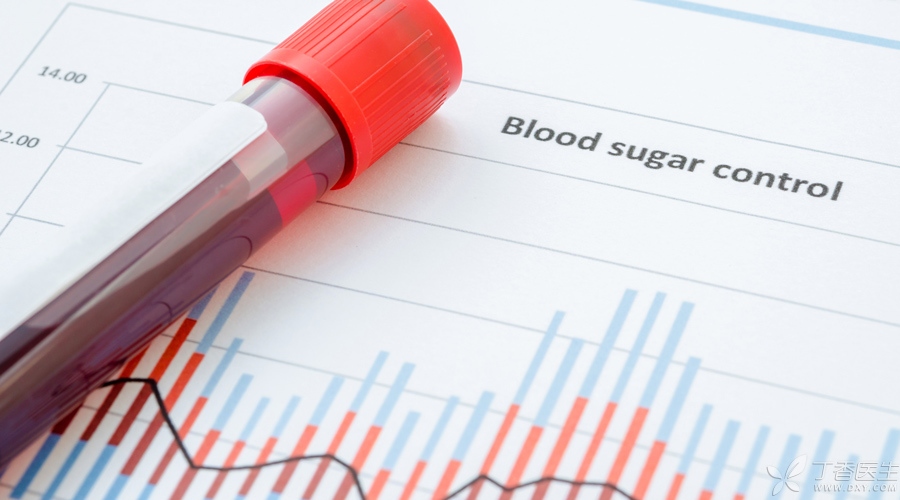
Have you ever had such experiences:
Eating, exercising and taking drugs are all in accordance with normal habits. What has not changed, but suddenly blood sugar rises and falls, which is not well controlled?
At this time, quickly recall, have you recently taken other drugs from what?
Some non-hypoglycemic drugs can also cause blood sugar fluctuations, so we should pay special attention to them.
Hyperglycemia
Non-hypoglycemic drugs that cause hyperglycemia can cause insulin resistance, make the body insensitive to insulin, and weaken the hypoglycemic effect of insulin. Or lead to significant weight gain, further aggravating insulin resistance, thus raising blood sugar.
These drugs mainly include:
-
Thiazide diuretics: such as hydrochlorothiazide and chlorothiazone, which are mainly used to reduce blood pressure and treat edema. Some weight loss health products may contain this drug.
-
Glucocorticoids: such as hydrocortisone, prednisone and dexamethasone, which are mainly used for anti-inflammatory and anti-shock treatment. Some health products for preventing gout and rheumatoid diseases may contain them.
-
Immunosuppressants: such as cyclosporine and tacrolimus, used after organ transplantation, etc.
-
Antipsychotic drugs: such as olanzapine, clozapine, risperidone, etc.
-
Contraceptive pill: It is related to the dosage of contraceptive pill. The greater the dosage, the greater the impact on blood sugar.
-
Lipid-lowering drugs: mainly nicotinic acid, nicotinic acid is a vitamin drug with lipid-lowering effect.
Hypoglycemia
Some drugs are not hypoglycemic drugs, but can still induce hypoglycemia through various ways, for example, increasing insulin sensitivity, amplifying the hypoglycemic effect of insulin, or promoting insulin secretion, or reducing the release of glycemic substances in the body, thus possibly inducing hypoglycemia.
These drugs mainly include:
-
Fluoroquinolone antibacterial drugs: [floxacin] family, such as norfloxacin, levofloxacin, ciprofloxacin, etc.
-
Angiotensin converting enzyme inhibitors: [Puli] family, such as captopril, perindopril, etc., have the effects of lowering blood pressure and reducing urine protein.
-
Aspirin: Aspirin has antiplatelet effect and is used to prevent and treat cardiovascular and cerebrovascular diseases. When combined with insulin and sulfonylurea oral hypoglycemic drugs (such as gliclazide, glipizide, etc.), it increases the concentration of hypoglycemic drugs in the body and enhances the hypoglycemic efficacy.
-
Propranolol: It is mainly used to treat hypertension, hyperthyroidism and other diseases. In addition, propranolol may also cover up hypoglycemia symptoms such as palpitation and sweating.
-
Alcohol: When using hypoglycemic drugs, if you drink alcohol on an empty stomach or take drugs containing alcohol, such as Huoxiang Zhengqi Water, it is easy to induce hypoglycemia.
-
Others: Other drugs that can cause hypoglycemia include lidocaine, prazosin, acetaminophen, amitriptyline, etc. Among them, many cold medicines contain acetaminophen, an antipyretic and analgesic ingredient, which requires special attention.

Avoid blood sugar fluctuations by doing so
In order to avoid blood sugar fluctuation caused by non-hypoglycemic drugs, we need to pay attention to the following 3 points.
1. Be alert to [health care products]
At present, the health care product market is mixed with good and evil people. Some health care products have added unknown ingredients, such as diuretics, glucocorticoids, etc. Blind administration is harmful to health and may lead to poor blood sugar control.
2. Consult a doctor before taking drugs.
For over-the-counter drugs, do not buy them at will, but use them under the guidance of a doctor. Before prescription drugs are used, you need to contact a doctor.
3. Measure blood sugar frequently
Some drugs do cause blood sugar fluctuations, but they must be used due to the needs of the disease. Therefore, everyone should closely monitor blood sugar, keep in touch with doctors, and adjust the treatment plan at any time to keep blood sugar stable.
